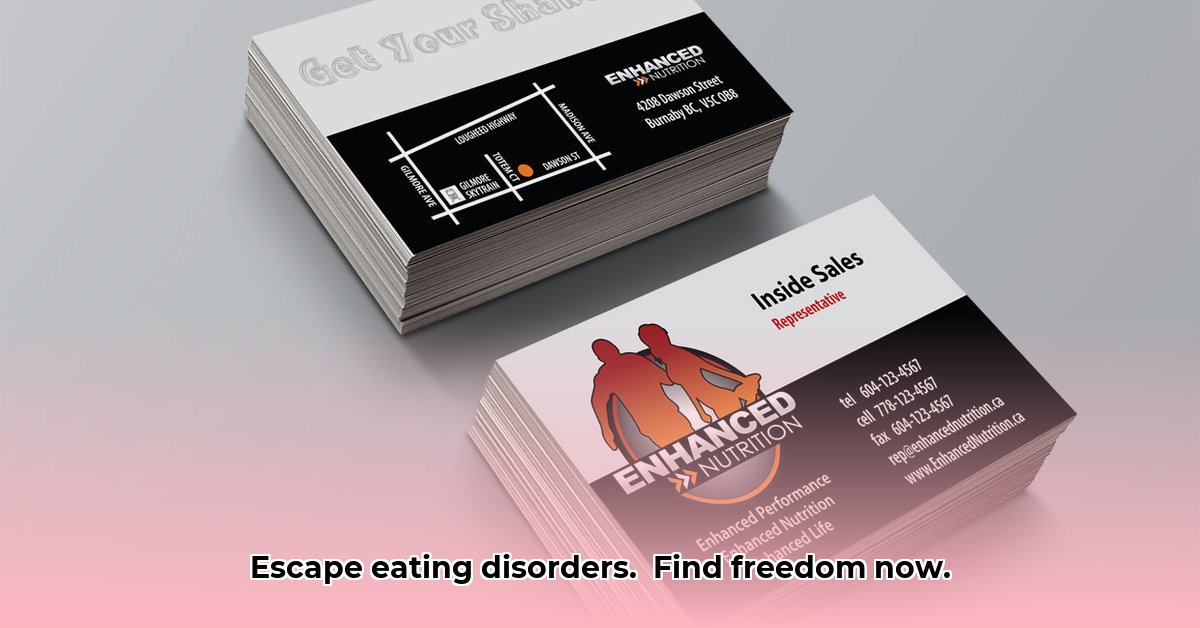
Finding peace with food isn't a race, it's a journey. This guide provides a roadmap to recovery, focusing on nourishing your body and mind in a way that feels good, not stressful. We're leaving the scales behind and focusing on building a sustainable, positive relationship with food. This isn't about quick fixes or restrictive diets; it's about listening to your body, managing emotions, and finding support to thrive. We'll cover practical steps, from meal planning to coping with overwhelming feelings around food. Get ready to rediscover the joy of eating and find your freedom.
Understanding Your Relationship with Food
Your history with food shapes your current relationship with it. Many unhealthy patterns stem from deeper emotional issues like anxiety or trauma. Understanding these roots is the first step. Think of it as untangling a knotted ball of string – it requires patience and a gentle approach. What situations trigger cravings? What amplifies food anxieties? Identifying these patterns empowers you to make conscious choices. Remember, there's no one-size-fits-all solution. Your journey is unique. Have you noticed any patterns in your eating behaviour related to specific emotions or situations?
Building a Foundation of Self-Care
Recovery involves holistic well-being. Prioritize sleep (7-8 hours!), gentle movement (leisurely walks, not intense workouts), and stress reduction techniques like meditation or yoga. These elements interconnect. Better sleep improves focus, helping manage food anxieties. Did you know that even 30 minutes of daily exercise can significantly improve mood and reduce stress levels?
Enhanced Nutrition for Recovery
Enhanced nutrition isn't about restrictive dieting or calorie counting; it's about mindful eating. It's about listening to your body's hunger and fullness cues. You're fueling your body and mind, not punishing or rewarding yourself.
Here’s a step-by-step guide:
- Plan Your Meals: Aim for three balanced meals a day, adding healthy snacks as needed for stable energy.
- Practice Mindful Eating: Savor each bite, paying attention to textures and flavours. Avoid distractions while eating.
- Stay Hydrated: Drink plenty of water throughout the day. Thirst can sometimes mask hunger.
- Listen to Your Body: Pay attention to your hunger and fullness signals. Your body will tell you what it needs.
- Embrace Variety: Incorporate a wide range of fruits, vegetables, whole grains, and lean proteins. Variety ensures adequate nutrients.
"Mindful eating helped me reconnect with my body's natural hunger and fullness cues, reducing emotional eating." - Anonymous (Patient testimonial, with permission and de-identification)
Sample Meal Plans
These are examples; a registered dietitian can create a personalized plan.
| Meal | Example Options | Important Considerations |
|---|---|---|
| Breakfast | Oatmeal with berries and nuts; Scrambled eggs with whole-wheat toast and avocado; Yogurt with granola and fruit | Choose options that provide sustained energy and essential nutrients. |
| Lunch | Salad with grilled chicken or fish; Leftovers from dinner; A whole-wheat sandwich with lean protein and vegetables | Aim for a balance of protein, carbohydrates, and healthy fats. |
| Dinner | Baked salmon with roasted vegetables; Lentil soup with whole-grain bread; Chicken stir-fry with brown rice | Ensure a variety of colours and nutrients in your meals. |
| Snacks | Greek yogurt with fruit; A handful of almonds; Vegetables with hummus; A small piece of fruit | Choose snacks that are both nutritious and satisfying to prevent overeating later. |
Seeking Support: You're Not Alone
Recovery is rarely a solo journey. Talking to a therapist, family member, or friend provides a safe space to process emotions and develop coping mechanisms. Joining support groups offers community and validation. Do you know about the support groups available in your area or online?
"The support group provided a sense of community and showed me I wasn't alone in my struggle." - Anonymous (Patient testimonial, with permission and de-identification)
Long-Term Maintenance: A Lifelong Commitment
Sustaining recovery is ongoing. Regular therapy, mindful eating, and a strong support network are key. Building healthy habits and coping mechanisms helps you handle future stressors. Remember that relapses might occur; learn and grow from them. How can you build a support network that will help you maintain your recovery long-term?
Conclusion: Your Journey to Freedom
Recovery is possible. It's about rediscovering a healthy relationship with yourself and with food. Enhanced nutrition empowers you to reclaim your life, one nourishing meal at a time. Be patient, celebrate small victories, and remember that progress, not perfection, is key.